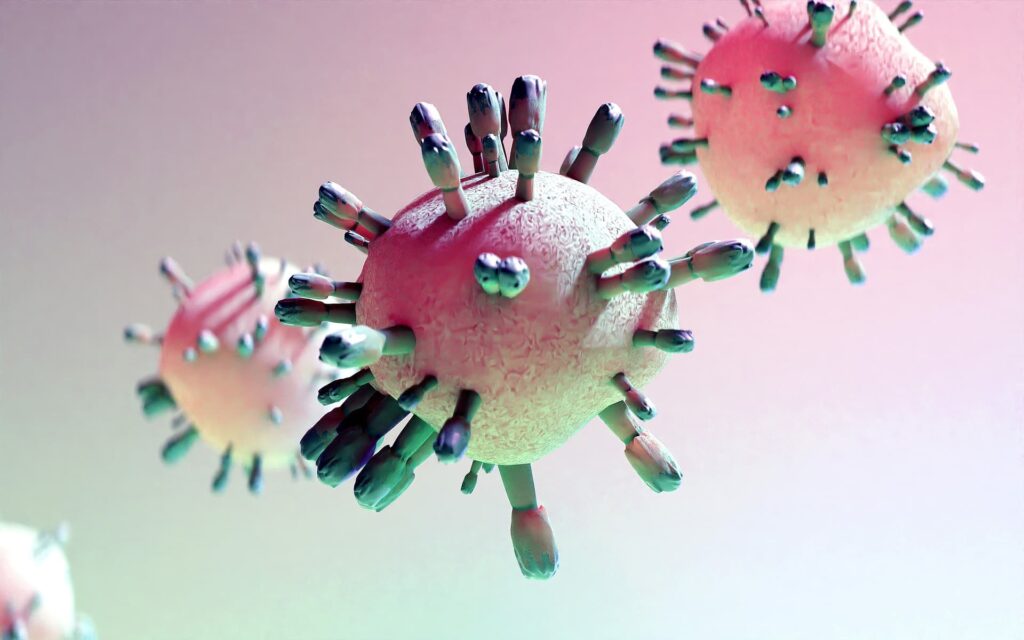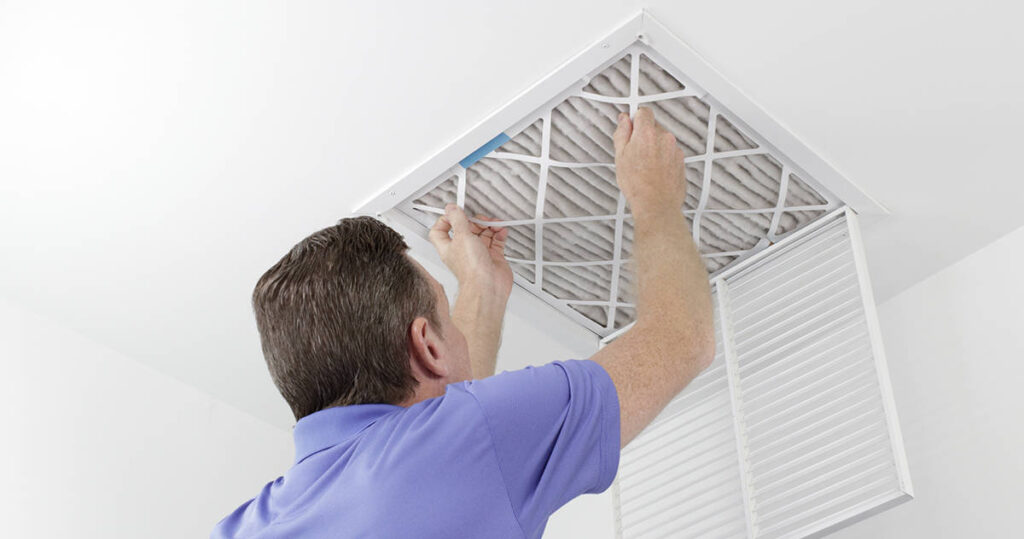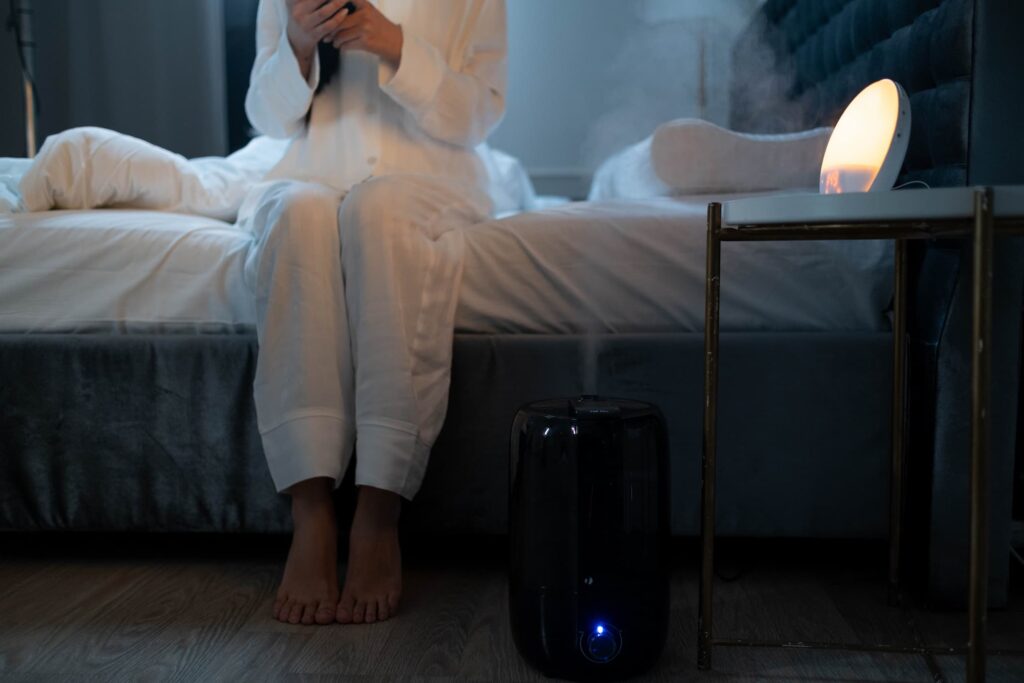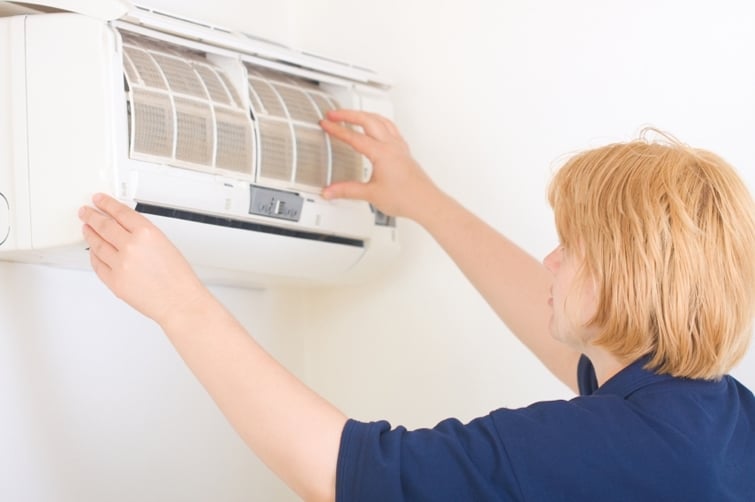When most people think of air pollution, they think of exhaust pipes and smokestacks. For the sake of indoor living quality, it’s important that you do everything possible to maintain adequate air quality, as the reality is that it can often be as bad as those items that come to mind. Often to forget about due to the lack of smell, taste, or visual cues, poor air quality can have serious impacts on health over time, and it’s not something you’ll want to subject you or your family to.
The average family spends upwards of 90% of their time indoors, meaning that the air you breathe while there will dictate your quality of health and life over the years. In this article we’re going to explore the most common air pollutants that you need to be aware of and strategies for eliminating them from your home for the long-term, covering everything you need to improve indoor air quality for your family.
Common Air Pollutants

Air pollutants can range in scope and severity, stemming from items as simple as pets who track in foul scents to physical gas leaks within the home. One of the most common – and by far the most deadly – air pollutants is carbon monoxide, which stems from natural gas escaping through the pipes and into your home. Most homes will have a carbon monoxide detector, allowing you to recognize issues and evacuate before they become deadly.
Beyond that, there are also instances of asbestos, lead particles, mold and mildew in homes, which will release particles into the air and circulate through the home. Although not immediately impactful, lost-term exposure to these substances can have a serious impact on quality of breathing and lead to significant health complications. It may not be immediately clear as to how to test air quality in your home, but we’ll discuss that shortly.
Ways to Improve Air Quality
1. Change Your AC Filter
Replacing the valve will require you to remove the discharge pipe and then unscrew the valve.
Air conditioning systems are important to helping you maintain livable temperatures inside of your home year-round, but they can also lead to hazardous air quality if not properly maintained. While cycling air through the home, your air conditioning unit will act as a natural filter, catching hazardous air-pollutants and preventing them from re-entering the space. As time passes, and cycles compound, the air conditioning filter will get backed-up with pollutants and clog, preventing it from effectively doing it’s filtering work. Replacing your air filter will be the quick fix for this problem, ensuring that the unit continues to function properly and capture harmful pollutants.
Note that if you don’t regularly change your air conditioning filter it can lead to the unit overheating, causing serious damage and requiring expensive maintenance down the road.
2. Don’t Forget About Other Air Filters
Although the air-conditioning filter plays an important role in maintaining air quality, it certainly isn’t the only filter needing your attention. Your various home appliances – from vacuum cleaners to dryers to kitchen vents and beyond – must all be regularly inspected and maintained. This will ensure that there aren’t any major blockages preventing the air-purification from occurring, and it will allow them to run successfully deep into the future.

3. Check Your Air Ducts
Your air ducts are responsible for distributing cold and warm air throughout the living spaces in your home, allowing each room to maintain a comfortable temperature. Over time, dust, pollutants, and in some cases mould will build-up inside of the air ducts, and as air gets distributed throughout the home, it will carry with it those unwanted particles, distributing contaminants from one room to the next. It’s important that you have a professional clean out your air ducts regularly to ensure that only fresh, clean home air quality is being introduced to your family.
4. Use Cooking Vents
A vast majority of indoor air pollutants can be blamed on the kitchen – especially those with gas stoves. When used, a gas stove will release harmful contaminants, such as carbon monoxide and nitrogen dioxide, which can be incredibly harmful to the human body over long exposure periods. Electric burners emit similar pollutants, but at a lower level, resulting in a less-immediate but still dangerous impact. To avoid excess exposure, it’s advised that you take advantage of your kitchen vents – either range or ceiling – or crack open a window to allow fresh air to flow through the space. This will help to dissipate the toxic air particles, and lead to a better long-term at-home experience.
5. Keep Rugs and Carpets Clean
Anyone who owns carpets and rugs knows two things. First, they can be incredibly comfortable and improve the quality of life at home. Second, they can be tremendously difficult to keep clean and trap air pollutants and particles at a much quicker rate than other flooring alternatives. This can be advantageous, as they work as natural air filters which capture base airborne elements and don’t let them go. If uncleaned, though, simply walking on the carpet will cause these particles to spur up and go airborne. In order to ensure that your carpets aren’t holding onto excess air pollutants over time, it’s advised that you give them a thorough cleaning every week or two. This will allow for them to work as effective filters which also provide a comfortable environment!

6. Control Indoor Humidity
Indoor humidity control is an incredibly important aspect of eliminating mould and mildew in your home, which are two primary drivers behind allergies and asthma. Depending on where you live, the warm summer months will often lead to increased levels of humidity within the home, and if the air is too moist, that humidity will begin to wreak havoc. To defend against this, it’s recommended that you place a few dehumidifiers throughout your living space to capture the moisture circulating in the air. This will prevent the heat from causing air-quality complications, and will allow you to enjoy the warm summer months without having to worry about mould, mildew, or other air pollutants building up in your home.
As a side note, most modern dehumidifiers will have an air filter component, allowing you to clean your air as moisture is maintained – two birds with one stone!
7. Get Indoor Plants To Freshen the Air
Plants are the most natural air filter in the world, and it just so happens that they are also an incredible home décor option. As a way to naturally clean the air inside of your home and ensure that pollutants aren’t able to run rampant, it’s advised that you place several plants (either large or small) throughout the various rooms and spaces across your home. In terms of selecting the plants most capable for the job, you should look for ferns and lilies (which are on the smaller side and bloom indoors) or palm trees (which are much larger), as they are both incredibly powerful filters. Aside from those specific examples, you’re welcome to introduce any greenery possible, as there is absolutely no downside to implementing greenery to your inside spaces.
Still Need Help? Contact the Pros
Maintaining comfortable, safe air quality within your home is no easy task, but it’s important to ensure that you’re taking the preventative measures that eliminate harmful pollutants and encourage fresh air for the years ahead. If you’ve learned some valuable management tips from this article, take time over the following days to implement them and assess whether you see valuable changes or not. If the challenge ahead seems daunting, it’s encouraged that you call on an expert team to support you through the process.
ThermEnergy has been providing heating and cooling air maintenance services to clients across the Greater Toronto Area for over 10 years. We’re proud to have thousands of satisfied customers in the GTA who know they can rely on us for prompt and professional installation, repair, maintenance, and seasonal tune-ups. We’re more than well equipped to improve the indoor air quality of your home through HVAC maintenance services. To learn more about our team, services, or to request a visit to ensure that your family is breathing the cleanest air possible, contact our team today.

